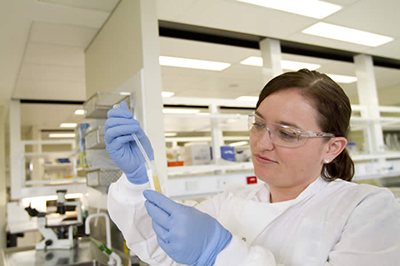Gallipoli Medical Research Foundation pioneers PTSD solutions
EXTRA >>
LIKE the ANZACs it is named after, the Gallipoli Medical Research Foundation is involved in an audacious attack – in this case on an affliction that often hits returned soldiers and others in the community.
A particular area of focus for the medical research foundation at the moment is post traumatic stress disorder (PTSD) which has afflicted many returned servicemen, including those from recent combat zones Afghanistan and Iraq, as well as others in community roles such as emergency services. 
The Gallipoli Medical Research Foundation’s motto is ‘remembrance through research’ and it sums up how the organisation is fighting for curative success in the area of PTSD right now.
The foundation, originally set up by the late philanthropist Paul Ramsay’s Ramsay Health at Greenslopes Private Hospital, is also battling to find successful new treatments in areas as diverse as liver cancer, respiratory, opthamology and wound management.
Gallipoli Medical Research uses an innovative and audacious approach in both its research and fund raising activities.
“Ambition can be a taboo subject in the not-for-profit sector however working for the ‘greater good’ shouldn’t purge you of ambitious drive,” Gallipoli Medical Research Foundation CEO Miriam Dwyer said.
“The archaic belief that ‘charities’ should act conservatively does not serve any cause. Pioneering thinking and innovative partnerships will reap far more dividends.”
Ms Dwyer said about one million Australians were known to suffer from the debilitating illness that is PTSD, including a high prevalence within the veteran community.
“Indeed, it is frightening to think that, in 2001-2009 alone, more US veterans committed suicide than were killed in Iraq or Afghanistan,” Ms Dwyer said. “Our PTSD Initiative was born out of a desire to help forge a pathway to recovery for our veterans and all Australians suffering with the impacts of PTSD.
“Given the enormity of this problem, we know we have to grow this project, aim big and deliver results for our stakeholders – just as any major corporation must do to satisfy its shareholders.”
The inaugural PTSD study commenced in March. Now the foundation is working to get greater business involvement in supporting it. Part of that process is Gallipoli Medical Research Foundation’s involvement in the Queensland Leaders program as an Executive Member this year.
“The focus is now on how this research can be developed in the next phase of the Initiative,” Ms Dwyer said. “What role can business play in driving forward a project such as this?”
I feel strongly that a corporate partnership needs to reflect the values and aims of both partners. As we form relationships with our Gallipoli 100 partners, we look for organisations whose goals and desired achievements align with ours.
“In the lead up to the Anzac centenary in 2015, we seek to partner with organisations that believe we owe it to our servicemen and women to conduct this research. Partners who believe in state-of-the-art, cutting edge technology and who understand that the complex results of this research must be translated into outcomes that are accessible to all Australians,” Ms Dwyer said.
“I am certain that, when given the opportunity to partner with the best in the corporate sector, charities can drive change forward with professionalism and focus so that corporate partnerships with the not-for-profit sector will be seen as opportunities, not obligations.
“In return, the corporate sector stand to gain a level of engagement with stakeholders – as well as insider access to inspiring breakthroughs – that they might not find in many other working relationships.”
ends

 How to resolve AdBlock issue?
How to resolve AdBlock issue?